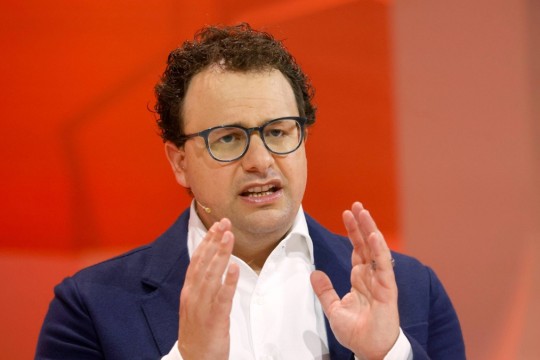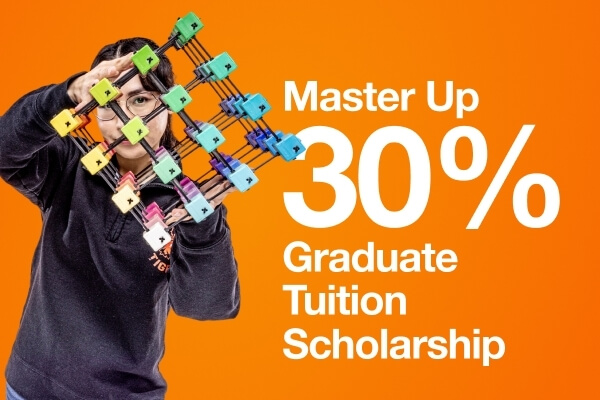Science, Technology, and Public Policy Master of Science Degree

Science, Technology, and Public Policy
Master of Science Degree
- RIT /
- Rochester Institute of Technology /
- Academics /
- Science, Technology, and Public Policy MS
Overview for Science, Technology, and Public Policy MS
Why Pursue a Science, Technology, and Public Policy MS at RIT?
Top-Notch Faculty: Develop strong connections with faculty and researchers who are actively working on scientific and technological innovations that drive new public policy needs.
Dynamic Curriculum: Gain the skills needed to contribute to important policy issues in the private, public, and not-for-profit sectors.
Flexible Options to Complete Your Degree: Choose between a thesis or capstone project to earn your science, technology, and public policy MS.
A Technical Public Policy Degree for Today's Innovative World
Self-driving cars, cybersecurity threats, data protection and privacy, and artificial intelligence are just a few of the hot-button topics in the rapidly evolving intersection of technology, innovation, and public policy. This master's in public policy enables you to work at the intersection of engineering, science, and technology while contributing to important policy issues in the private, public, and not-for-profit sectors. Understanding how to create effective public policy takes both an awareness of the science and technology behind a topic as well as a grounding in the system of laws, regulatory measures, and courses of action that affect it.
RIT’s Science, Technology, and Public Policy MS
With a focus on policy areas that have a strong science or technology element (energy, health systems, technology innovation, environment, and cybersecurity), our program builds on RIT’s strengths as a technological university and connects you with faculty and researchers who are actively working on scientific and technological innovations that drive new public policy needs.
The science, technology, and public policy MS is equally ideal for those with undergraduate degrees in either:
- Science or engineering
- An area of liberal arts (e.g., economics, public policy)
Science, Technology, and Public Policy Degree Courses
Public policy degree core courses emphasize analysis, problem-solving, and interdisciplinary approaches, which are required in this program.
Elective courses are selected with an advisor and allow you to focus your studies on an interest or career area, such as environmental policy, climate change policy, health care policy, STEM education policy, telecommunications policy, biotechnology policy, environmental policy, communications policy, or energy policy. Electives are offered in various colleges throughout the university, including the colleges of Business, Engineering, Engineering Technology, and Science.
In the thesis and capstone options, you will work with a faculty adviser on an independent research project in your area of interest.
-
Affordable Now. Valuable for Life.
Earn your master’s degree without the full price tag. With Master Up you can receive a 30% tuition scholarship for an RIT master’s degree.
-
Meet us on-campus on February 19
Learn about the programs that interest you. Hear from program faculty, speak with current graduate students, and ask the questions that will help you get one step closer to your career goals.
Careers and Experiential Learning
Typical Job Titles
| Budget Analyst | Energy Efficiency Program Manager | Government Relations Specialist |
| Healthcare Services Analyst | Legislative Aid | Market Researcher |
| Policy Analyst | Regulatory Affairs Manager | Research Associate |
Cooperative Education and Internships
What makes an RIT education exceptional? It’s the ability to complete relevant, hands-on career experience. At the graduate level, and paired with an advanced degree, cooperative education and internships give you the unparalleled credentials that truly set you apart. Learn more about graduate co-op and how it provides you with the career experience employers look for in their next top hires.
Co-ops and internships take your knowledge and turn it into know-how. A liberal arts co-op provides hands-on experience that enables you to apply your knowledge in professional settings while you make valuable connections between course work and real-world applications.
Co-ops and internships are optional but strongly encouraged for graduate students in the MS in science, technology, and public policy.
Featured Work and Profiles
-
For a career in medical device innovation, biomedical + policy expertise = a toolbox for transformation
Policy, insurance, pricing, and more—the RIT's master's degree program demystified the complexities of healthcare industry and equipped this recent grad to drive meaningful societal change.
Read More about For a career in medical device innovation, biomedical + policy expertise = a toolbox for transformation -
Biomedical Engineering + Master's in Science, Technology, and Public Policy Equips Recent Grad for Impact
2025 grad now serves as a field service engineer for a company driving the scale of genomic information to advance human health.
Read More about Biomedical Engineering + Master's in Science, Technology, and Public Policy Equips Recent Grad for Impact -
The Thrill of Impactful Research Led Grad to Master's in Science, Tech, and Public Policy
“I have always appreciated the liberal arts and examining pressing issues from many angles. This is why I chose a Public Policy BS degree. I wanted to pursue a master’s degree with Science,...
Read More about The Thrill of Impactful Research Led Grad to Master's in Science, Tech, and Public Policy -
Healthcare Research Prepped Grad to be Successful Med School Applicant
"I initially enrolled in the MS in Science, Technology, and Public Policy to strengthen my skills in writing and public speaking, as these are not big focuses in engineering. The program has provided...
Read More about Healthcare Research Prepped Grad to be Successful Med School Applicant -
Grad Finds Ph.D. Program Success With Skills Developed in Science, Technology, and Public Policy BS/MS
“As a student in the Science, Technology, and Public Policy BS/MS program, I gained an appreciation for the rules, regulations, and policies that govern my field of undergraduate study, biomedical...
Read More about Grad Finds Ph.D. Program Success With Skills Developed in Science, Technology, and Public Policy BS/MS -
BS/MS Grad Values Critical Thinking Skills Developed at RIT
“My time in the BS/MS program set me up to be the well rounded engineer I am today.
Read More about BS/MS Grad Values Critical Thinking Skills Developed at RIT
Curriculum for 2025-2026 for Science, Technology, and Public Policy MS
Current Students: See Curriculum Requirements
Students are also interested in
Admissions and Financial Aid
This program is available on-campus only.
| Offered | Admit Term(s) | Application Deadline | STEM Designated |
|---|---|---|---|
| Full‑time | Fall or Spring | Rolling | No |
| Part‑time | Fall or Spring | Rolling | No |
Full-time study is 9+ semester credit hours. Part-time study is 1‑8 semester credit hours. International students requiring a visa to study at the RIT Rochester campus must study full‑time.
Application Details
To be considered for admission to the Science, Technology, and Public Policy MS program, candidates must fulfill the following requirements:
- Complete an online graduate application.
- Submit copies of official transcript(s) (in English) of all previously completed undergraduate and graduate course work, including any transfer credit earned.
- Hold a baccalaureate degree (or US equivalent) from an accredited university or college. A minimum cumulative GPA of 3.0 (or equivalent) is recommended.
- Submit a current resume or curriculum vitae.
- Submit a personal statement of educational objectives.
- Submit two letters of recommendation.
- Entrance exam requirements: None
- Submit English language test scores (TOEFL, IELTS, PTE Academic, etc.), if required. Details are below.
English Language Test Scores
International applicants whose native language is not English must submit one of the following official English language test scores. Some international applicants may be considered for an English test requirement waiver.
Duolingo (DET): 130
IELTS: 6.5
LanguageCert Academic: 74
PTE Academic: 60
TOEFL: 88/4.5
International students below the minimum requirement may be considered for conditional admission. Deaf and hard-of-hearing test takers with significant hearing loss do not need to take the listening and speaking sections for the TOEFL and IELTS. Each program requires balanced sub-scores when determining an applicant’s need for additional English language courses.
How to Apply Start or Manage Your Application
Cost and Financial Aid
An RIT graduate degree is an investment with lifelong returns. Graduate tuition varies by degree, the number of credits taken per semester, and delivery method. View the general cost of attendance or estimate the cost of your graduate degree.
A combination of sources can help fund your graduate degree. Learn how to fund your degree
Accreditation
Research
Student and Faculty Research Drives Progress in Public Policy
Students in the Science, Technology, and Public Policy (STPP) master’s degree program work closely with faculty on cutting-edge research projects that address real-world policy challenges.
These collaborations provide hands-on experience in data analysis, policy evaluation, and interdisciplinary research, and several of these joint research efforts have resulted in publications in peer-reviewed journals, spanning topics such as healthcare innovation, energy policy, disaster management, and environmental sustainability.
This close mentorship ensures that graduates not only gain applied research experience but also contribute to the advancement of knowledge in science and technology policy. Some highlight examples of some publications authored by STPP students and/or faculty include:
- “Hearing Diversity and Inequality of Emergency Services: Perspectives on Greater Societal Inclusion for the Deaf.” Equality, Diversity and Inclusion: An International Journal. Rothenberg, Sandra, David Baldridge, Iskender Mambetkadyrov (STPP student), Brian Tomaszewski, James Fugate, Jason Rotoli, Qing Miao, and Lee Smith. Forthcoming.
- “Potential of Low-Field MRI for Increasing Participation of Filipino Americans and Underrepresented Populations in Alzheimer’s and Dementia Research.” Alzheimer’s & Dementia TRCI. Mikkael Lamoca (STPP student), Sandra Rothenberg, Roman Czornobil (STPP student), Eugenie Mamuyac, Karl Korfmacher, Iris Asllani, and Jessica DeLeon.
- “Disability Inclusion in Local Emergency Management: Evidence from a National Survey of Emergency Managers.” International Journal of Disaster Risk Reduction. Volume 130, 105808, 2025. ISSN 2212-4209. Iskender Mambetkadyrov (STPP student), Qing Miao, Sandra Rothenberg, Brian Tomaszewski, James Fugate, Jason Rotoli.
- “The Optimal Timing of Storage Additions to Solar Power Plants.” Energies 18 (14): 3619. 2025. Aidan Hughes (STPP student), Jarred King (STPP student), and E. Hittinger.
- “Identification of Predicate Creep under the 510(k) Process: A Case Study of a Robotic Surgical Device.” PLoS One 18(3): e0283442. 2023. Charlotte Lefkovich (STPP student), and Sandra Rothenberg.
- “Can Regulatory Efforts Motivate Innovation? The Case of Ventilator Innovations During COVID.” IEEE Engineering Management Review 49(4): 30–40. 2021. Krista Stanislow (STPP student), Sandra Rothenberg, Ezekiel Leo, and Marcos Esterman.
- “Emissions Effects of Energy Storage for Frequency Regulation: Comparing Battery and Flywheel Storage to Natural Gas.” Energies 14(3): 549. 2021.Eric Pareis (STPP student), and Eric Hittinger.
- “Predicate Data Availability in the Ventilator 510 (K) Network.” Journal of Science Policy & Governance 22(1). 2020. C. Abby Bratton (STPP student), Mercy Chado (student), Austin Davis (student), Julia Vaillancourt (STPP student), Sandra Rothenberg, and Ezekiel Leo.
- “Using Marginal Emission Factors to Improve Estimates of Emission Benefits from Appliance Efficiency Upgrades.” Energy Efficiency 12(3): 585–600. 2019. Courtney N.Smith (STPP student) and Eric Hittinger.
- “Forecasting Price Parity for Stand-Alone Hybrid Solar Microgrids: An International Comparison.” Energy Systems 9(4): 953–979. 2018. Jawad Siddiqui (STPP student) and Eric Hittinger.
- “Tradeoffs between Revenue and Emissions in Energy Storage Operation.” Energy 143: 1–11. 2018. Laura M. Arciniegas (STPP student), and Eric Hittinger.
- “The Challenging Economics of US Residential Grid Defection.” Utilities Policy 45: 27–35. 2017. Eric Hittinger and Jawad Siddiqui (STPP student).
Related News
-
November 7, 2025

As federal aid slows, disaster-prone municipalities face escalating recovery costs, borrowing pressures
ION Analytics speaks to Qing Maio, associate professor in the Department of Public Policy, about the increased denials of disaster aid requests.
-
June 17, 2025

The Black Box Myth: What the Industry Pretends Not to Know About AI
Eryk Salvaggio, visiting lecturer in the College of Liberal Arts, is featured in an article about the artificial intelligence industry published by Tech Policy Press.
-
November 8, 2024

Passion for prioritizing accessibility inspires alumna
Valerie Horn believes accessibility should be at the forefront of entrepreneurs’ minds when developing their businesses. This belief pushed her to co-found Zestability, a consultation firm that advocates for prioritizing accessibility and inclusive business practices.
Contact
- Delaney Ball
- Assistant Director
- Office of Graduate Admissions
- Enrollment Management
- 585‑475‑6933
- Delaney.Ball@rit.edu
- Eric Hittinger
- Department Chair
- Dean’s Office
- College of Liberal Arts
- eshgpt@rit.edu
Department of Public Policy






















